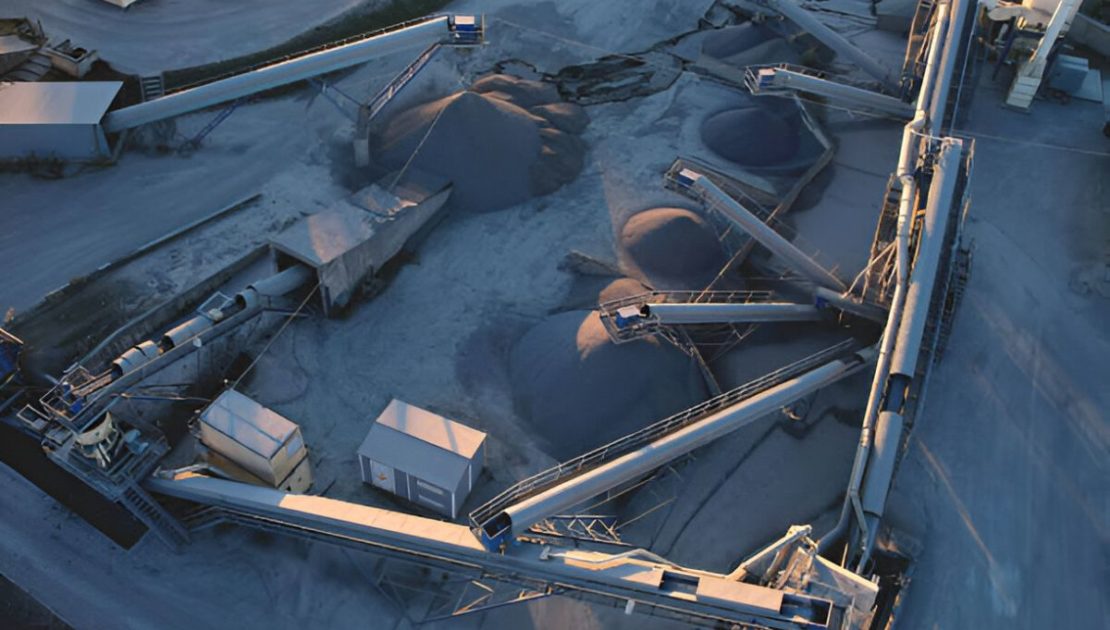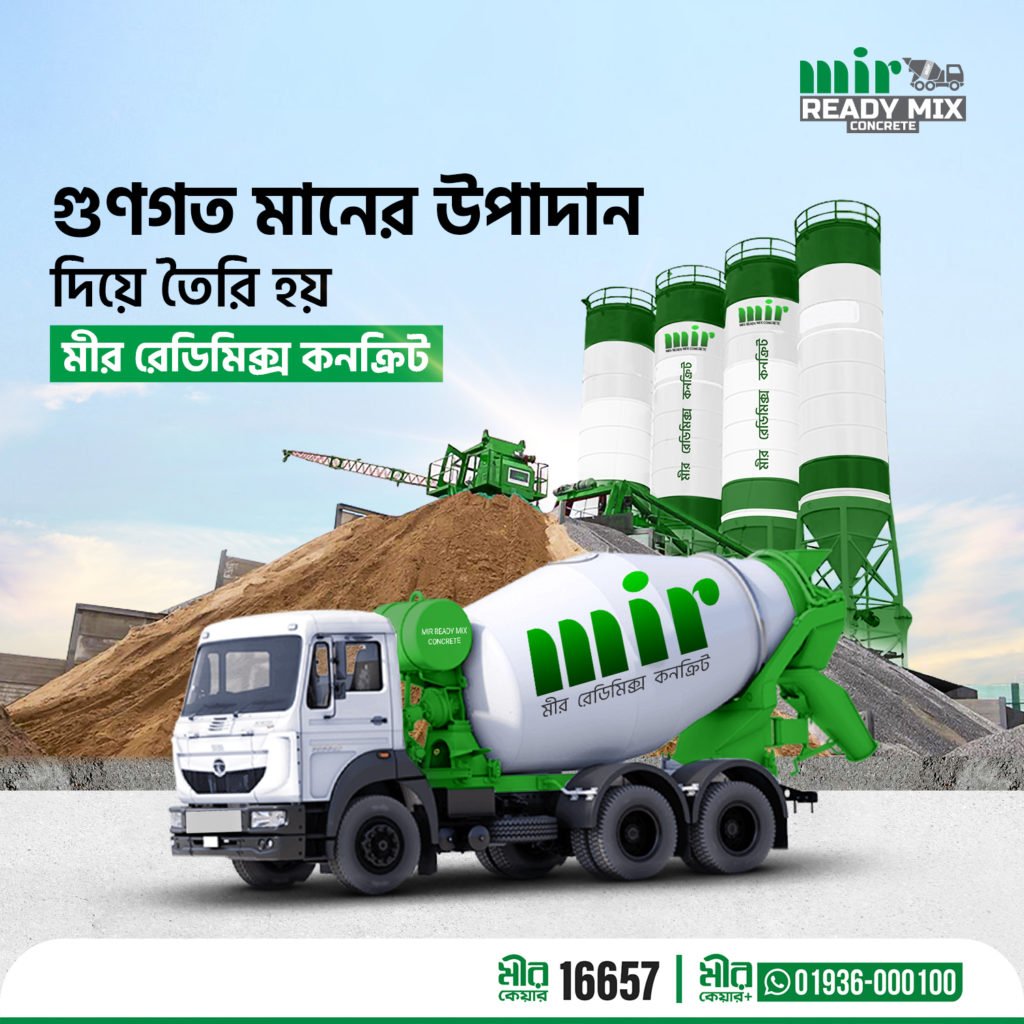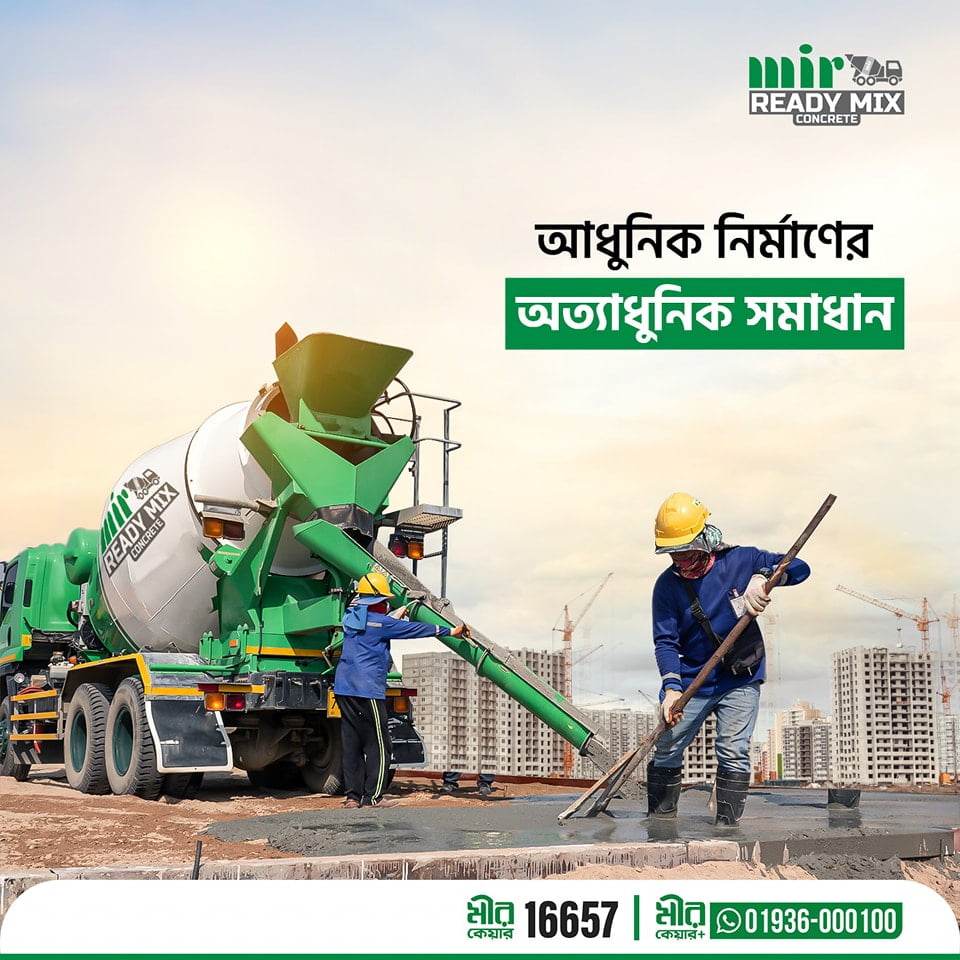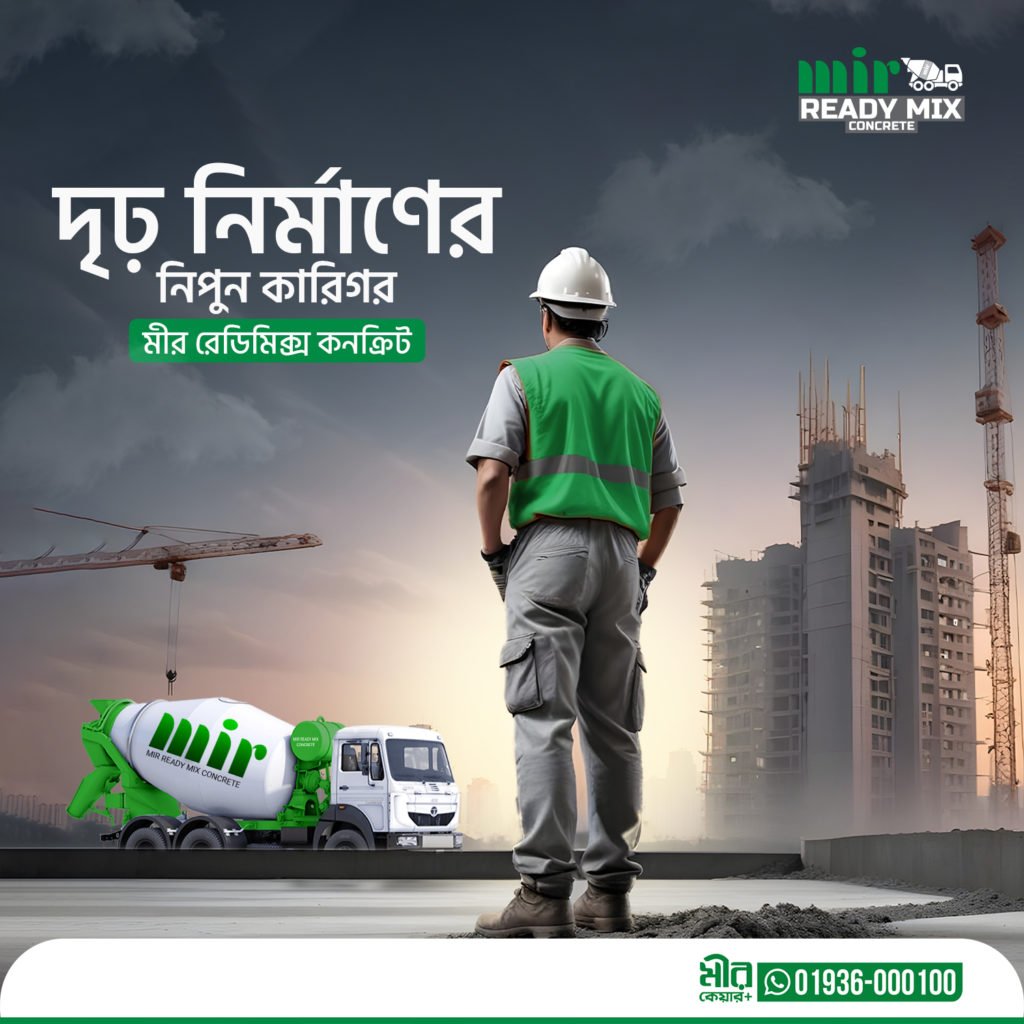Difference Between Ready-mix Plant and Batching Plant
- September 10, 2024
- Posted by: Mir Ready-mix Concrete
- Category: Ready Mix Concrete, Tips

The choice between a ready-mix plant and a batching plant plays an important role in the efficiency and quality of concrete application. In a ready-mix plant, concrete is prepared and mixed before delivering it to the construction sites. Coming to the batching plant, concrete is prepared by combining various ingredients in exact proportions. It is a bit tough to grasp the concept of these two plants.
Hence, mirreadymixconcrete.com, to make you understand the difference between ready-mix plant and batching plant easily!
Checklist
Ready-mix Plant Vs. Batching Plant in Short
| Factors | Ready-Mix Plant | Batching Plant |
| Purpose | Manufacturing and Delivering Ready Mix Concrete for Construction Projects | Batching Wide Range of Products According to the Needs of Different Types of Industry |
| Types of Materials | Cements, Water, Aggregates, and Additives | Cements, Water, Aggregates, Additives, Asphalts, Chemicals, and Other Ingredients |
| Validity | Must be Used within a Specific Time Period | Depends on the Material, Type of Product, and Industry |
| Scalability | Based on Production Capacity | Flexible |
| Automation | Highly Automated | Depends on the Project |
| Batch Size | Large | Varies According to Materials and Usage |
| Location of Sites | Urban Areas or Construction Sites | Depends on the Requirements of Industry |
| Quality Control | High | Industry-based |
| Transportation | Ready-Mix Trucks | No Specialized Transport |
| Cost | Expensive | Cheap |
Ready-mix Plant
Ready-mix plant produces concrete that is ready for immediate usage. This pre-mixed concrete is batched at a central plant. Cement, aggregates, additives, and water are mixed in exact measurements. The mixture that is produced is uniform, homogeneous, and consistent. Later on, the concrete is transported to construction sites through specialized trucks.
This plant saves time as on-site mixing is not necessary. It is appropriate for large-scale projects like the construction of roads, bridges, or buildings.

Pros
Here are the pros tips for the difference between a ready-mix plant and a batching plant.
Time Efficiency
Ready-mix plants fasten the concrete manufacturing process. As a result, the delivery process becomes efficient and smooth to construction sites. As the need for on-site mixing is eliminated, time can be invested in other aspects. If the deadline is tight, it will be a good choice.
Consistent Quality
This type of plant produces concrete in a controlled environment. The ingredients are used in accurate measurements. The mixing process is also pinpointed. Therefore, the quality and strength that comes out is uniform as variability reduces. In a nutshell, the overall performance of the concrete is enhanced.
Reduction in Wastage
This plant has a tighter control of the materials consumed. It minimizes waste. Thus, cost-effectiveness is promoted. Moreover, ready-mix plants shield environment-friendly practices as the reserve of unused material is reduced.
Cons
Ready-mix plants cannot be customized. Operators have limited control over the mix. A delay in delivery can cost a lot to the project. Furthermore, if the produced concrete is not managed and stored properly, there will be issues in the strength and durability of the concrete.
Application
Ready-Mix plant-produced concrete is suitable for large-scale projects like roads, buildings, skyscrapers, highways, and infrastructures. It gives the best result to projects where rapid placement and consistent quality are extremely necessary.
Batching Plant
Batching Plants offer facilities where the ingredients of concrete are rationed, mixed, and produced as per the needs of the projects. This plant is flexible as custom concrete mixes can be created through it. A batching plant is also known as a concrete batching plant. It manufactures high-quality concrete according to the needs of the industry.
This plant is suitable for projects that require customization. Smaller volumes of projects benefit hugely from batching plants.

Pros
Check out these pro tips to understand the key differences between a ready-mix plant and a batching plant. Learn the benefits of each and discover which option is better suited for your construction projects.
Flexibility
Batching plants feature flexibility to mix proportions according to the needs of the project. Furthermore, diverse projects can be accommodated and different types of concrete can be manufactured through this. This adaptability is important for projects that seek versatility and personalization.
Customization
This plant facilitates the creation of personalized concrete mixes. Certain projects have unique and specific requirements. So, this feature ensures that the produced concrete lives up to the requirements like strength, longevity, durability, and other criteria.
Direct Control Over Production
Operators of batching plants have direct control over the total production process. As a result, precision is followed in the mix. Moreover, real-time adjustments can also be made. It helps to gain the desired quality and performance.
Cons
The maintenance cost of the batching plant is quite high. The operation process is a bit complex too. Batching plants requires considerable space. Additionally, there are also chances of facing logistical challenges.
Application
Batching plants are appropriate for construction projects that necessitate particular mix designs or concrete. This is mainly suitable for a smaller volume of projects that need to have the flexibility to customize.
Ready-mix Plant Vs. Batching Plant: Which One to Choose?
Knowing the difference between ready-mix plant and batching plant is not sufficient if you are handling a construction project. There are certain factors which will influence your decision. Check them out!

Size of the Project
Plant choice depends on the size and requirements of the projects. A ready-mix plant is suitable for large projects whereas a batching plant is suitable for small projects.
Budget
Though ready-mix concrete of a single unit is expensive, it becomes cost-effective when bought in bulk. On the other hand, the initial expenses of a batching plant are high.
Complexity in Operation
Ready-mix concrete delivery time needs to be managed properly. In the case of a batching plant, equipment, and logistics are required on-site for mixing and processing.
Flexibility
Batching plants are flexible as adaptability is ensured through this. The processing is done according to the needs of the project. However, ready-mix plants offer less flexibility. It is suitable for consistent production.
Impact on Environment
Ready-mix plant requires specialized transport energy. So, energy consumption is high. Transport emission in the case of batching plants is comparatively lower.
Conclusion
The choice of plant is really important to ensure a well-structured construction. This is up to you. Each has its own pros and cons. However, before deciding, it is recommended to know about every nook and corner of the project and the description of plants.
Hopefully, this guide on ‘Difference Between Ready-mix Plant and Batching Plant’ by mirreadymixconcrete.com has helped you!
